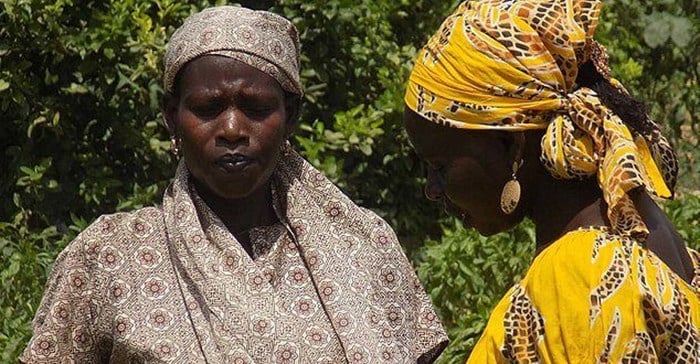
Top stories


Marketing & MediaWarner Bros. was “nice to have” but not at any price, says Netflix
Karabo Ledwaba 22 hours



Logistics & TransportMaersk reroutes sailings around Africa amid Red Sea constraints
Louise Rasmussen 15 hours

More news


















These funds are supposed to help NPOs provide services for older persons, child protection services, people living with HIV and Aids and persons with disabilities.
The dramatic budget cuts were made to settle back-payments on Occupation for Specific Dispensation (OSD) salaries, which DSD knew it had to pay since 2009. The Imbumba Association for the Aged says that the cuts will deprive at least 60% of its beneficiaries from receiving much-needed services provided by their community service centres.
According to Imbumba’s Deputy Chair Melumzi Sauka, “It is unacceptable that government seems to want to fix its mistakes at the cost of its constitutional responsibility to ensure a healthy life for all South Africans. These cuts are disgraceful and coupled with persistent and unexplained under-spending on social care and welfare services, it puts the lives and livelihoods of thousands of people at risk. Government’s failure to pay its staff properly and on time now means that thousands of older people, particularly older women – gogos surviving in rural areas, who rely on our services – will not be able to access the care, support, and community they need and deserve.”
In August the Imbumba Association, which consists of more than 50 organisations providing services to older persons and others in rural Eastern Cape, sent a letter asking EC DSD to explain why it took so long to settle this payment and how it came to the decision to dramatically cut services to older persons and people with disabilities. The state attorney acting for the DSD now seeks to mediate the dispute. The date for mediation is still being fixed.
Treasurer for Imbumba, Nosiphiwo Tetana says, “Community-based organisations are critical partners that support government with its constitutional responsibilities related to older persons’ care. This was particularly evident during the Covid hard lockdown periods when the value of community-based care was most evident. It is therefore quite troubling that DSD has informed our members that funding would be cut. Each centre has been limited to provide services to only 22 beneficiaries each, but there are still more people who require these services. Now, instead of supporting 2 580 people, we can only provide services to 1 040 people, leaving more than half of our people without any assistance. DSD must explain how this could happen.”
Tetana says that those affected are mostly older women who head households consisting of extended family members, who rely on the centres for nursing and essential care, in addition to food security and nutrition. These households typically depend on income from old age pensions, child support grants, and financial support from the grandchildren’s parents, who work away from home. She says that people also come to these facilities for a sense of community and connection, in addition to recreational opportunities.
According to Imbumba, the DSD has breached its duties in many ways. Firstly, the association was not properly consulted about the reasons for the cut. Secondly, the reasons behind the budget cut – which is to make late payment for something that should already have been in process – is also in contravention of the Public Finance Management Act (1 of 1999) (PFMA). Such adjustments are supposedly not allowed. Furthermore, since DSD has not put other services in place to fill these new gaps, this may lead to a violation of the constitutional rights of the older persons affected, in terms of the Older Persons Act.
According to notes from the Portfolio Committee meeting on 28 May 2021, DSD also continues to drag its feet on finalising an agreement regarding the provision of frail-care services, a mandate of the Department of Health, but which is adding further financial burden on DSD. It also states that DSD regularly underspends “on key services due to administrative delays” and “despite this failure to achieve their mandate, reductions in budget are always for programs and not for personnel.”
“What makes the issue even more unpalatable is that DSD is underspending its budgets, not only in Eastern Cape but in all the provinces. Even though the province has the most Community-Based Care Service Centres (serving 20 578 beneficiaries), Eastern Cape DSD was the second worst, underspending by more than R262m in 2020/21. The ripple effect is that thousands of beneficiaries could not get the food relief that should have been provided and employees in Early Childhood Development (ECD) centres could not access the presidential stimulus package,” says Tetana.
Imbumba says that it will therefore embark on a bold public campaign, calling for a cut to politicians’ salaries and benefits, until such time that they live up to their mandates and are held accountable when they do not.
“This past election made it clear that South Africans want a government that works with and for them, and we therefore urge citizens around the country to join our call. It is incredibly frustrating that our politicians, ministers and deputies, still receive annual increases and all the perks that come with the job, but their portfolios are failing. These decision-makers must be held accountable,” says Imbumba.
To avoid another Life Esidimeni tragedy – where hundreds of people in need of specialised care and support were relocated to places ill-suited to their specialised needs, leading to an unacceptable loss of life – the Imbumba Association calls on Department of Social Development to ‘Give Back the Money’ which should be used to provide much-needed services to older persons. Through their actions, Imbumba not only hopes to see DSD return the funding cut from its members’ subsidies, thereby ensuring that all their beneficiaries once again receive services, but also to ensure that DSD returns the balance to every NPO service whose budgets were cut to pay for the OSD.